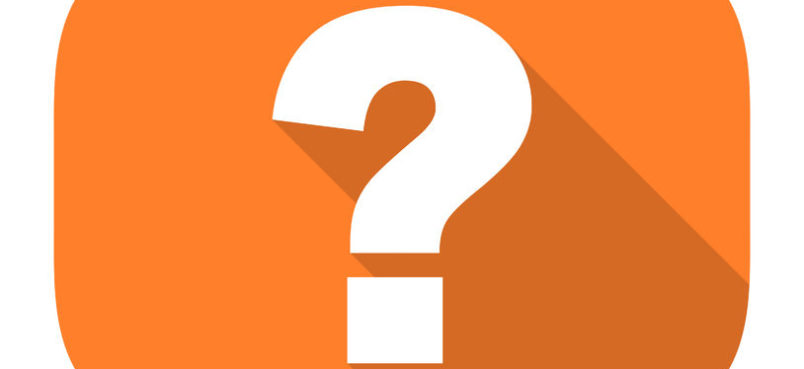There are several reasons to purchase long-term disability insurance. For some people, it might also be important to have short-term disability insurance. The question, “Should I buy disability insurance?” is only answerable based on your personal situation. Let’s look at the reasons to buy disability insurance and look at those who might not need to purchase any.
Who Should Buy Disability Insurance?
very limited benefit that can help support these families.
To qualify for social security disability insurance, you need to pass a recent work test (based on your age when you become disabled) and a duration of work test (based on how long you worked under social security). You also need to have a sickness or injury that prevents you from working and that is expected to last at least one year or result in death.
Social security disability insurance also has a very difficult occupation requirement, meaning you have to be disabled to where you cannot perform ANY occupation, as opposed to the friendlier own occupation definition of disability.
Last, social security disability insurance (SSDI) has a limited benefit amount that can be taxable. The average SSDI benefit is $1,171 per month, and the maximum benefit is $2,687 per month (as of the year 2017). For most people, these amounts will fall far below what they need to support their families.
If you have earnings or an occupation where the social security coverage is inadequate, then you must consider personal disability insurance.
What If I Am Extremely Frugal or Have Substantial Savings?
You may be in the unique category of individuals who either don’t need disability coverage or don’t require comprehensive coverage. In today’s world, even high-income professionals can live paycheck to paycheck. Expensive homes, cars, and toys all create an enormous drain on people’s finances.
However, if you’re not the Joneses then you can explore other possibilities.
It is certainly possible to self-insure a potential disability need. Although difficult for most, if you have substantial resources then you might not need to purchase a policy. This would mean that you could support your current lifestyle for several years with your savings. Of course, this would be at the expense of your retirement nest egg but there are people who can make this arrangement work. Plus, you can save the additional money that you would have spent on insurance premiums.
Disability insurance can be expensive. A typical disability insurance policy that covers the majority of your after-tax income will cost somewhere between 2% and 4% of your gross income. If you’re making north of 200k and have a plan through work, you could consider an individual plan to cover excess earnings (since many employer-based plans will max out benefits above that amount).
If your work coverage is adequate for your current lifestyle, even if you’re capped out you won’t need to purchase supplemental coverage. Just keep in mind that your coverage through your job has a few caveats:
If you leave, you probably won’t be able to take you coverage with you.
That might not be an issue if you go to another company with an existing plan, but if you go to a smaller company or even start your own, then you’ll need to forgo disability insurance for a time.
Your company can eliminate your disability insurance policy benefits at any time.
Again, this is unlikely if you work for a large corporation but smaller companies do run into problems and if there are any business expenses for those benefits, they may be on the chopping block.
Your ability to make a claim may be more difficult.
There are several group policies offered through employers and industry associations that require a total disability before a partial or residual disability claim can be made. This can make it difficult to go on claim if you have an illness that prevents you from working full-time but still allow you to do some of your job.
Considering all of this, it might still make sense for you to not purchase disability insurance. Every situation is different because everyone’s finances are different. People also have varying opinions on disability insurance in general. Some want all of their INCOME covered whereas others are happy just to have their EXPENSES covered.
If you can cover all living expenses out of pocket for an extended period of time (the average disability is 31-34 months) without purchasing insurance, then a disability insurance policy may not be for you.
Otherwise, you should explore your options.
Should I Buy Disability Insurance? If so, what type?
Several types of disability insurance are available outside of federal coverage. Most people should make sure they are covered for a long-term disability (lasting more than a few years), but you should also understand all the coverage available to you.
Short-Term Disability Insurance
If you’re lucky enough to live in the five states with a short-term disability insurance plan (Hawaii, Rhode Island, New York, New Jersey, and California), then you might not need additional private coverage. For everyone else, analyze how long your family could pay their bills should the breadwinner be unable to work.
Short-term disability insurance can come in two primary forms. Your company might offer this coverage, or you can purchase an individual plan. If your company provides short-term disability, make sure you understand how the coverage is triggered, how much is paid, and for how long. Group coverage is often less expensive and has limited (if any) underwriting that allows you to be covered. Individual coverage might be more expensive and challenging to qualify for, but it is portable (meaning, if you leave your job, you don’t lose your insurance) and can be customized based on the insured’s specifications.
Long-Term Disability Insurance
When people say, “Should I buy disability insurance?” they are often referencing long-term disability insurance. Unlike short-term disability insurance, long-term disability insurance is often structured to provide benefits from 2 years until retirement (up to age 70).
There are two main sources for long-term disability insurance (excluding social security). If they have it, most people have coverage through work. There are several negatives to relying on group coverage; however, having group coverage is better than not having any coverage.
If you can purchase an individual long-term disability insurance policy, then that is your best option. Having one of these policies allows you to create a custom build that suits your needs, allows you to take your coverage wherever you go professionally, and if paid for with after-tax dollars, will allow tax-free benefits payable on claim.
How Much Does Disability Insurance Cost?
Disability insurance costs vary widely, based on your health, occupation, policy design, and the policy you purchase.benefit amount, and length of benefits all come into play.
Based on this, a young, healthy professional with a small benefit amount and length will have the least expensive premiums. An older, less healthy person with a dangerous occupation and a large and lengthy benefit would be the most expensive.
For most people, disability insurance (DI) will cost about 2-4% of their annual stated income. If you’re considering buying DI and are thinking, “Should I buy disability insurance?” then cost will be a factor. However, most people spend three to four times that percentage for their vehicles, which is typically a depreciating asset that most would lose could they not make the payments due to a disability.
All things said, an individual disability insurance policy might not be inexpensive, but if you become disabled, even for a short period, the ability to maintain your savings and lifestyle is invaluable.
Summary
Most people need disability insurance. Being unable to work for something as common as cancer or due to an unforeseen circumstance, such as an auto accident, having a monthly income to pay the bills, maintain retirement accounts, and just maintain lifestyle is imperative.
Whether you have group or individual coverage, having something is the first step. Once your finances allow you to purchase comprehensive coverage, it should be your first priority. Most people’s most valuable asset isn’t their home or their IRA; rather, it is their lifetime earning potential.
Don’t leave that at risk. The answer to “Should I buy disability insurance?” is easy for most people…
Yes.
If you’d like to see policies and pricing personalized to your needs, please complete the quote form on the left or just call us. We provide expert, unbiased advice in selecting the best policy for your needs.


